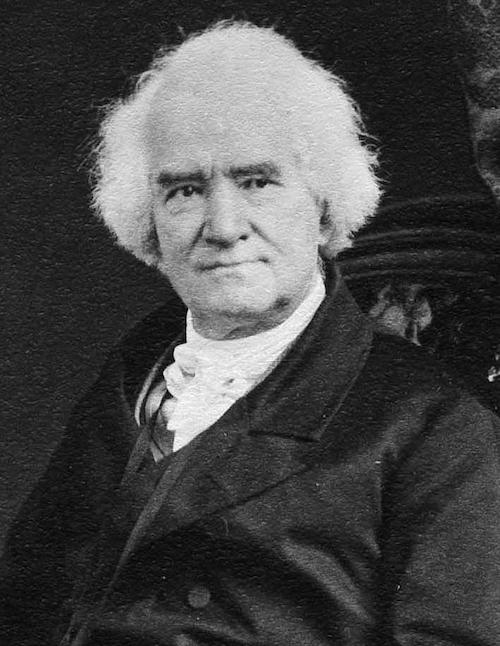George M. Dallas was the 11th Vice President of the United States from 1845-1849 and U.S. Minister to the United Kingdom from 1856 to 1861. Some historians believe the city of Dallas, Texas is named after him.
Early Life
George Mifflin Dallas was born on July 10, 1792, in Philadelphia to Alexander James Dallas and Arabella Smith. His father was the U.S. Secretary of the Treasury under President James Madison and was also briefly the Secretary of War.
Dallas graduated with highest honors from the College of New Jersey, now Princeton University. While Dallas attended college, he participated in the American Whig-Cliosophic Society. After graduating, he studied law in his father’s office and was admitted to the bar in 1813.
Political Career
Dallas began his career as a private secretary for Albert Gallatin, a U.S. minister to Russia, and was sent with him to Russia in an attempt to secure aid in peace negotiations between the United States and Great Britian. Dallas then relocated to London to determine whether the War of 1812 could be resolved diplomatically.
In August 1814, Dallas arrived in Washington D.C. and delivered a preliminary draft of Britian’s peace terms. President James Madison appointed him to become the remitter of the treasury.
Dallas served in a number of positions before he became Vice President. He was the Mayor of Philadelphia from 1828-1829, a U.S. Senator from 1831-1833, the Attorney General of Pennsylvania from 1833 to 1835, and Minister to Russia from 1837-1839.
Vice-Presidency
Dallas was nominated as the Democratic Vice Presidential candidate at the May 1844 Democratic National Convention. In 1845, Dallas became the Vice President under President James K. Polk. Dallas’ two main objectives were territorial expansion and the reduction of tariffs. He strongly supported the aggressive, expansionist policies embodied in “Manifest Destiny.” He actively supported efforts to gain control over Texas, Southwest Cuba, and disputed portions of the Oregon territory.
Dallas cast the deciding vote in the Senate for the Walker Tariff, which reduced tariffs on coal and iron. The Walker Tariff was highly unpopular in Pennsylvania, causing him to lose political support in his home state. Without home state support, Dallas gave up any opportunity for a presidential nomination in the 1848 election.
Late Career
After a single term as vice president, he was appointed by President Franklin Pierce to serve as Minister to Great Britain from 1856 to 1861. Dallas conducted negotiations leading to the Dallas-Clarendon Convention, which sought to settle conflicts between the U.S. and Great Britian over relations with Central America.






